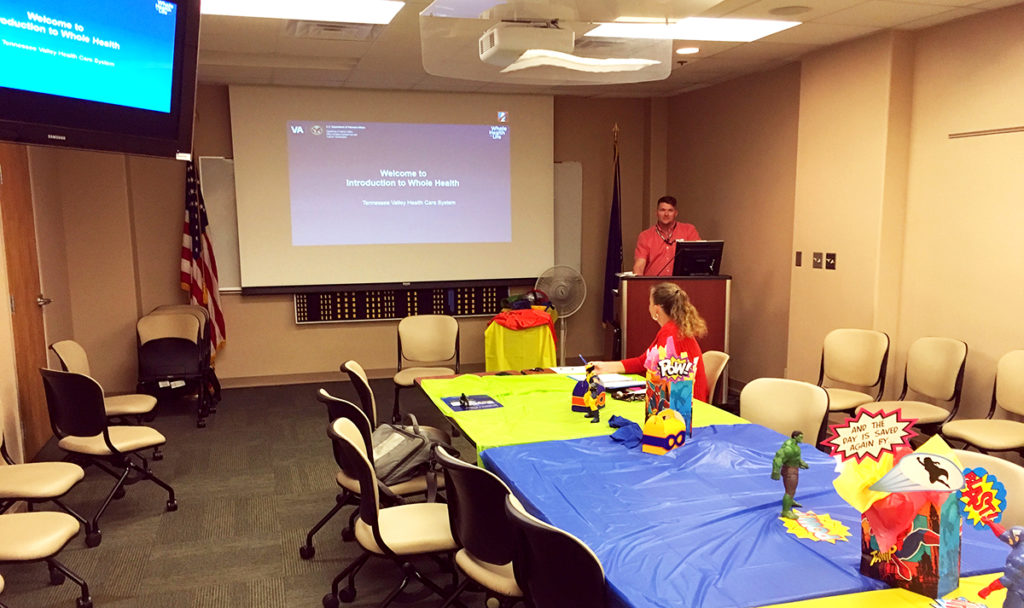
The VA hospitals in the Nashville area are trying to attract young veterans transitioning out of the military. This spring, they’ve scheduled interest meetings every two weeks as part of a broader suicide prevention effort by President Trump. The problem is, no one is showing up.
“So what is whole health?” former Special Forces soldier Jerry Page asks an audience of one. “Whole health is an approach to care that empowers and equips people to take charge of their health and well-being and live their lives to the fullest.”
The single veteran present this morning at the Alvin C. York campus in Murfreesboro works in the sprawling VA complex and was just curious to hear what the whole health initiative is all about. In short, it’s getting veterans into yoga, mindfulness and even cooking classes rather than having them only turn to the VA in a crisis looking for a pill or procedure.
Almost nobody has been making time to come and hear about the new modus operandi. Page, who served in the 5th Special Forces Group based at Fort Campbell, acknowledges the outreach presentations were sort of slapped together.
“I think the problem is, the veterans don’t want to come to the VA, and the VA doesn’t want to come to them,” he says. “So we need to find what solution fits best.”
The initiative comes from on an
executive order signed in the Oval Office by President Trump in January.
“I’m honored to be at the forefront of the greatest strides ever made at the VA for our veterans, and it’s not even close,” Trump said, flanked by cabinet members including the VA secretary who was
ousted a few months later.
The larger policy change includes a free year of mental health coverage for everyone departing the military. That’s when they’re at an elevated risk of suicide. Previously, VA officials say only 40 percent of service members were getting mental health benefits in the first year after transitioning out of uniform.
“When I first got out, it was rough because I didn’t know anybody,” says Victor Odom, who spent nine years in the Army.
When Odom transitioned out in 2013 after multiple deployments as a fuel technician, he moved back to Clarksville to be near his favorite duty station — Fort Campbell.
“The information didn’t flow as well as it did when you were around all your peers in the Army. It felt like I was alone,” he says.
He eventually found his way to the VA to deal with his post-traumatic stress disorder but he still hasn’t been looped in to the wellness initiative.
More:
To Control Pain, Battle PTSD And Fight Other Ills, Tennessee Vets Try Tai Chi
The VA’s new focus on whole health only works if veterans link up with the system before things get dire. Page — the VA presenter — says he knows he’s battling an entrenched stigma that the system is just for old guys with health problems.
“I was in their shoes, and I wasn’t looking forward to coming to the VA,” Page says.
It wasn’t until he had his own crisis that he wound up there himself. Local VAs are now trying to get out of the business of just dispensing pills to fix complicated conditions. But first they have to find a new way to get the word out to the right people.
Just this week, Nashville VA officials met with the medical staff at Fort Campbell to discuss ways to help transitioning soldiers get involved with the wellness program as soon as they leave the Army.
“We’re going to go out to the community. We’re going to try and talk to the veterans, going to try and bring them in as much as possible,” he says. “But I think it also hinges on whether that veteran is ready for the care as well.”


